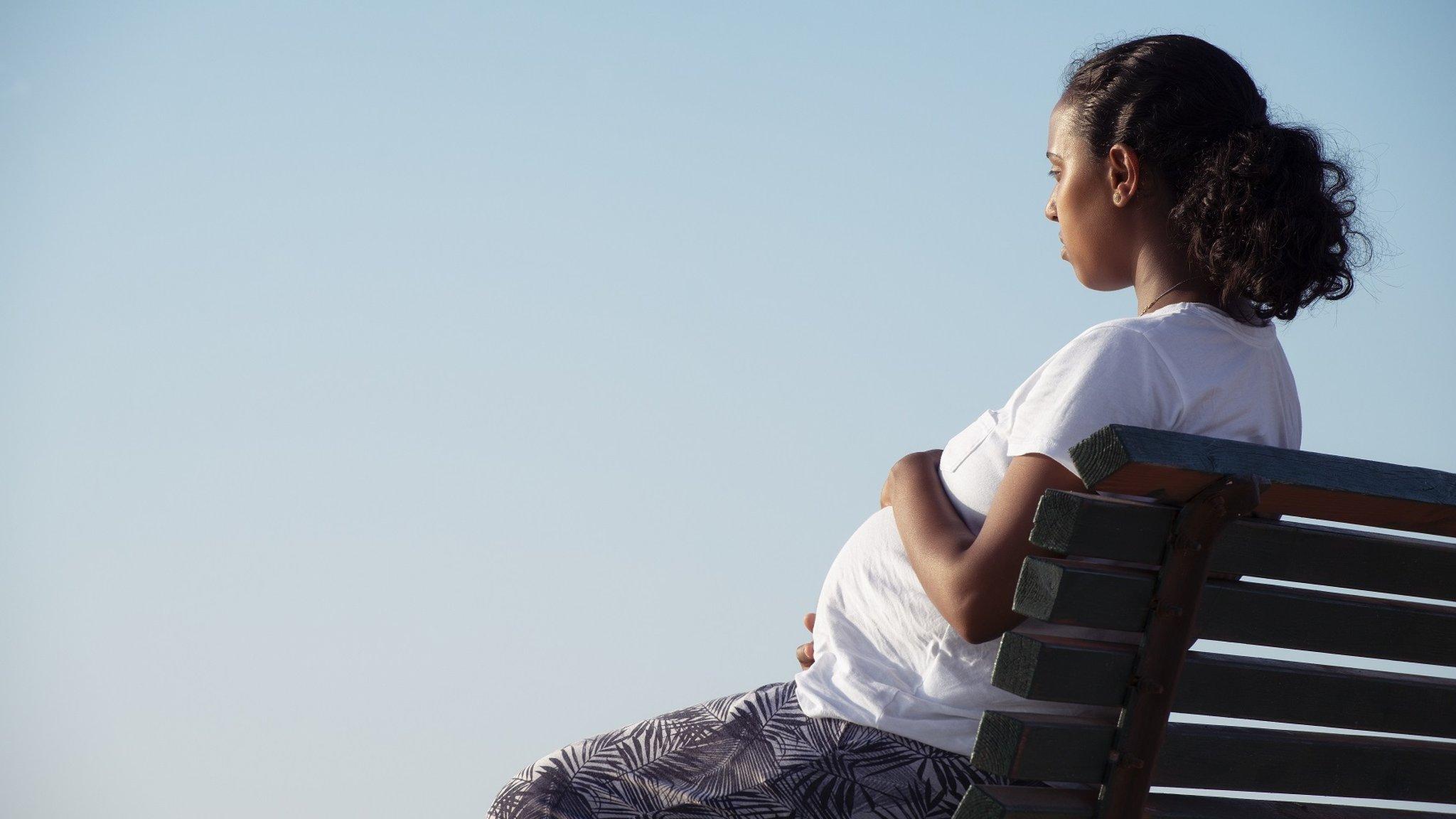Candice Brathwaite: 'We are only ever called upon in times of trauma'
- Published
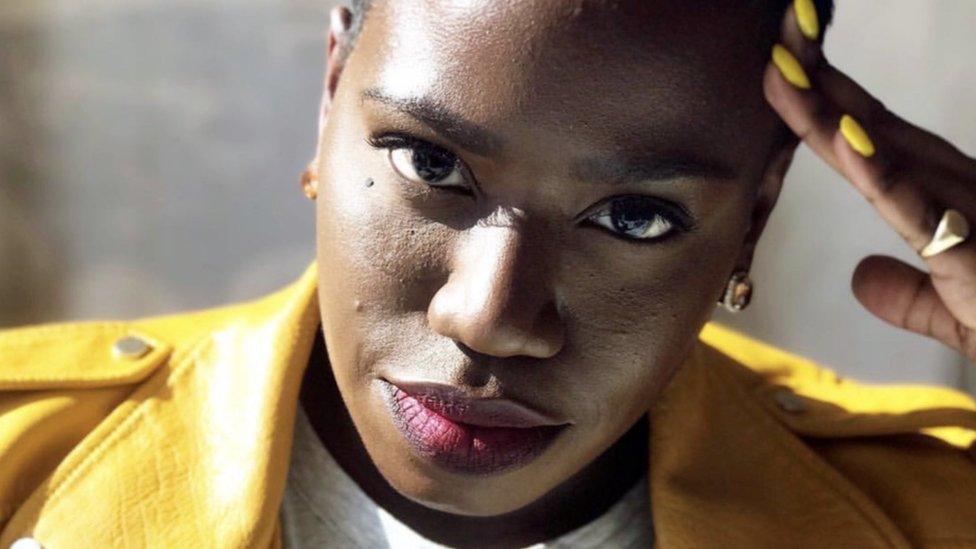
Candice Brathwaite: "The first day is when you realise you're black - the second one is when you're ostracised for it"
Candice Brathwaite is an author, blogger and Instagram influencer whose writing about the challenges faced by black mothers has helped open people's eyes.
In her debut book, I Am Not Your Baby Mother, which was published last month, she examines issues such as unconscious bias, microaggression and white privilege.
Here, in her own words, she talks about how racism has affected her life - and of her hopes for the future.
'I had to provide a receipt for my champagne'
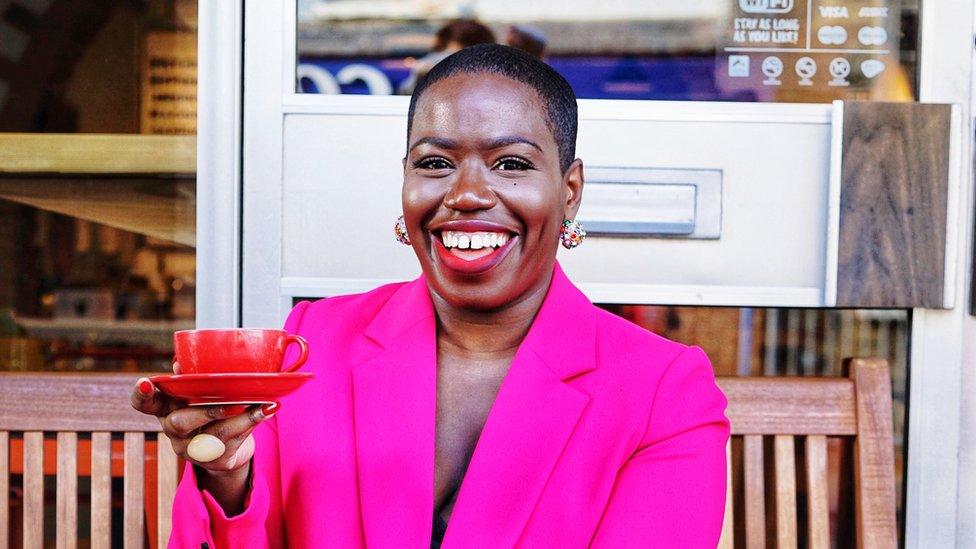
Brathwaite has more than 150,000 followers on Instagram - a number that is steadily climbing
On the day my book was published, I went out to buy champagne. A bundle of customers were exiting the supermarket and of course only I got stopped. Of course, I'm asked to produce a receipt.
I'm in a proper whizz-bang outfit, I'm dressed to the nines, but it just goes to show dressing - the class I'm in, the school my kid goes to - does not negate the fact that I'm a black woman, usually in very white situations, and that is always seen as something of a problem.
That in itself is a microaggression because that means I'm waking up every day with a heaviness, with an expectance of having to prove myself, of being judged.
Every time my husband drives his car and the music is a bit too loud and he pulls up next to the police; his body's instinct is to turn the music down. I see 19-year-old white boys joyriding - not a care in the world.
So there is a distinct heaviness that a black person wears because we know when we're in a space where we're in the minority, we know we have to adjust and conform and not be seen as problematic, and that in itself is exhausting.
Allow Instagram content?
This article contains content provided by Instagram. We ask for your permission before anything is loaded, as they may be using cookies and other technologies. You may want to read Meta’s Instagram cookie policy, external and privacy policy, external before accepting. To view this content choose ‘accept and continue’.

'How long is it going to take?'
Martin Luther King had this dream, Obama had this dream and we've been dreaming. The dream - the absolute utopia - is a post-racial society.
But how long is it going to take? Writer and activist James Baldwin said in the 1980s: "You had my father's time, my mother's time, my sister's time - how much time do you want for your progress? Because in the interim, black people are still dying."
The Black Lives Matter movement is not new; police brutality in the UK and the US is not new. These conversations have been happening since before I was born. The New Cross fire was before I was born.
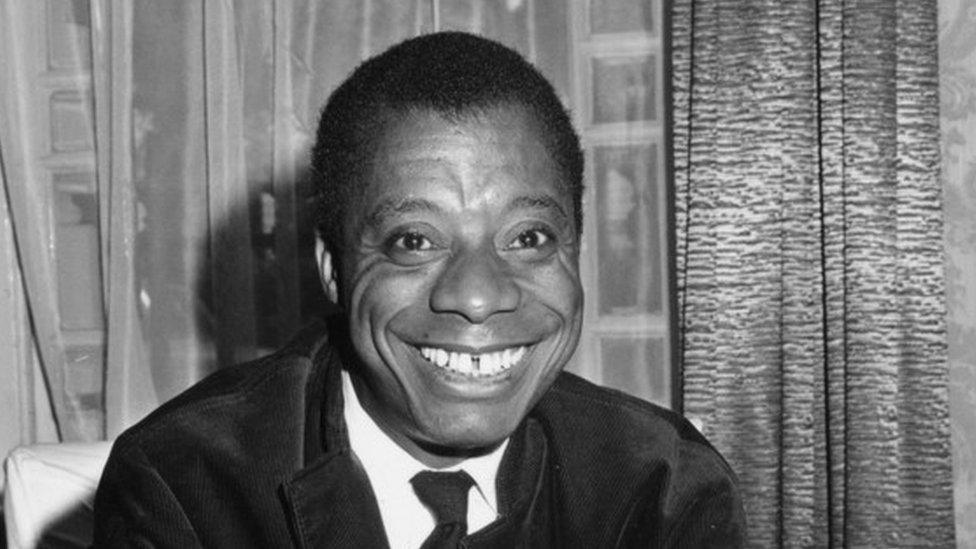
Author James Baldwin was a prominent activist in the mid-20th Century
I don't think people who aren't black comprehend how this has an effect on our mental health. The emotional labour of trying to teach or change minds or raise awareness about racial injustice is so, so, exhausting.
I also think within the black community itself we don't speak about it enough, because mental health is still very much a taboo for the black community.
I do think there is room for discussion where you don't need to die like George [Floyd] did, you don't need to be living through a situation like the Stephen Lawrence family; this is impacting black people in a way that you can't see.
Every black person has their two days. The first one is when you realise you're black, the second one is when you're ostracised for it. The dream is to eradicate that.
The thing with racism, especially in the UK, is it's always like "prove it then, go on, prove your pain, prove the situation".
'I've never been more aware of my blackness'
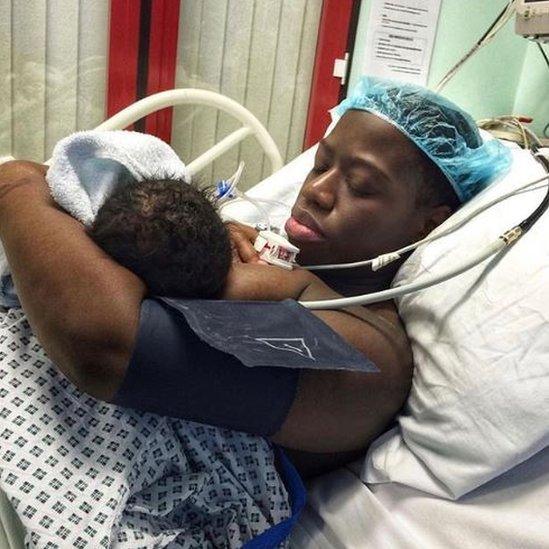
Brathwaite has helped raise awareness that black mothers are much more likely to die than white mothers

I grew up in London but the decision to move to Milton Keynes felt really simple. We found out we were having a son, and knife crime is on such a steep and steady rise - I see knife crime as an epidemic - so it wasn't a risk I was prepared to take.
The country to us is Milton Keynes; you're in the green and you're not in the hustle and bustle.
But it has come at a grave cost because never before since being born in the UK have I been more aware of my blackness in a space, especially when we first moved here, in a little village. I've never been more aware of my blackness, ever, because we are now one of one.
And then in the school my daughter first attended, a child refused to play with her because she was black. That would never have happened in London, ever. It's such a melting pot of multi-cultural diversity.
So I'm constantly stuck between a rock and a hard place because I moved to potentially save my future son, but, in the interim, we now have a long list of microaggressions to deal with. We now have a long list of people who look at us a little too long.
I've not lived here long enough yet to say if it was worth it. I do know that violent crime is lower here. In the two years that we've lived in Milton Keynes I only know of one violent stabbing where two young people died. And when you compare that to London, it is not a comparison.
But what a rubbish situation to be in. I'm going to choose between my son being stabbed to death or racism.
'We are only ever called upon in times of trauma'
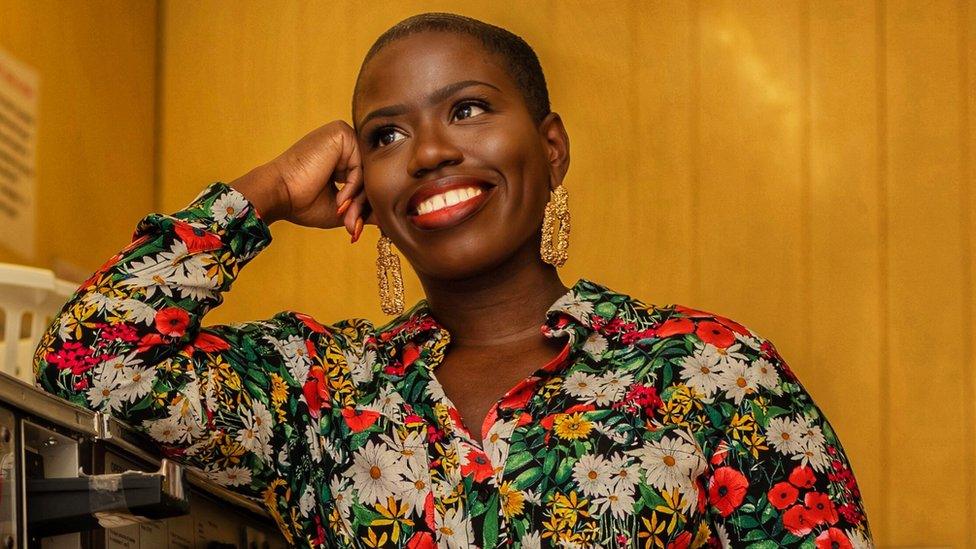
"I'm not included in the day-to-day softness of the world," the author says
When people say they don't see colour, that writes off centuries of historical pain and it's really unfair. I think it's a bit of a cop-out to say "I don't see colour". In order to even say you "don't see colour and we treat everyone equally", we've all got to be on an equal footing.
And black people in the UK and around the world just aren't yet.
So the change from "I don't see colour" to actively being anti-racist, to actively teaching children about white supremacy and their place in privilege and power and what they can do, to help their black peers or their minority peers, is where it needs to be.
Even though I do this work, this isn't my 24/7 lived experience. Sometimes I get dressed up to go out and now I sit in my living room and have a good time.
I like fashion, I like beauty, I like nails, I watch TV, I read books. But our names are never in the hat for day-to-day joyful content, for day-to-day joyful work; we are only ever called upon in times of trauma.
And the fact that I'm not included in the day-to-day softness of the world, that in itself is racism. That in itself is exclusion.
'The noise around the world is getting louder'
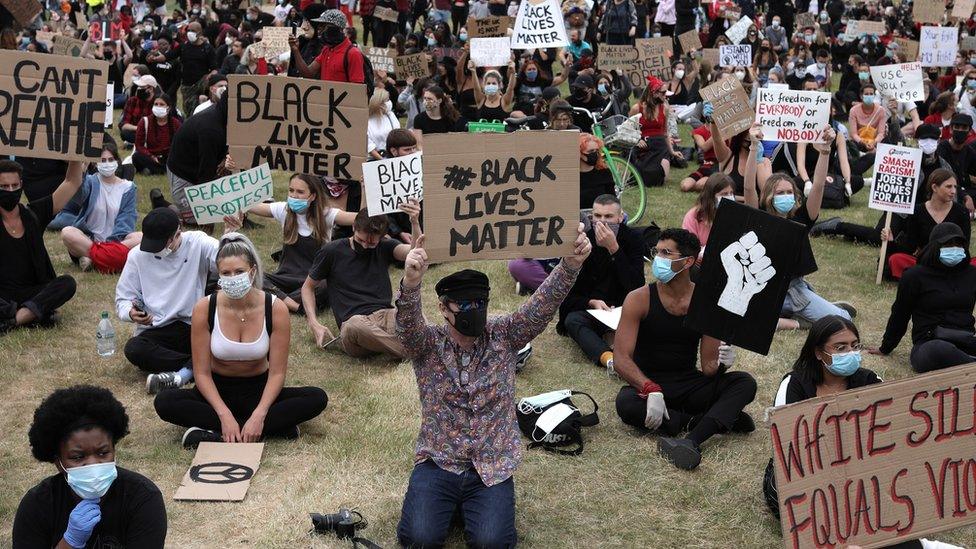
Thousands of people have attended recent protests held in London
I know myself and my peers do feel like sometimes 'is it worth it?' because we genuinely feel like we won't live to embrace the moment when we're in a post-racial society. I genuinely feel that.
But also I've never seen anything like this universal protest in my life. So like the Obamas say about their time in the White House, progress isn't just this uphill trajectory, there will be dips. But right now I see, ooh we've gone a step up.
The noise around the world is getting louder and so even though I might not get to see the day, I'm committed to my kids' kids seeing the day.
Allow Instagram content?
This article contains content provided by Instagram. We ask for your permission before anything is loaded, as they may be using cookies and other technologies. You may want to read Meta’s Instagram cookie policy, external and privacy policy, external before accepting. To view this content choose ‘accept and continue’.

As for why this is happening now, I think it's just the timing. Everyone's at home, everyone is glued to their screens. Before, people may have perhaps seen that video and gone 'gosh this is really bad, like what are they going to do to solve that problem?'
But with lockdown and everyone being in their homes, they can reckon with and understand that 'no, we're a part of the problem and this responsibility is on us'. In this time of silence and stillness for a lot of us, what can we be doing to make sure this never happens again?
I want people to learn, especially white people, that being an ally doesn't always have to be a grand gesture. It certainly doesn't always have to be public.
Maybe it's you mentoring a black person, or helping them to climb that career ladder - all those things add up.
Not all change is going to happen through protesting. We need protesting, we need social media, but this is a multi-pronged attack here; you don't just have to do one thing.
Find out what you're good at and comfortable with because once you find out what you're most comfortable with, that's what you're going to do all the time.
As told to Rebecca Cafe
- Published12 April 2019
